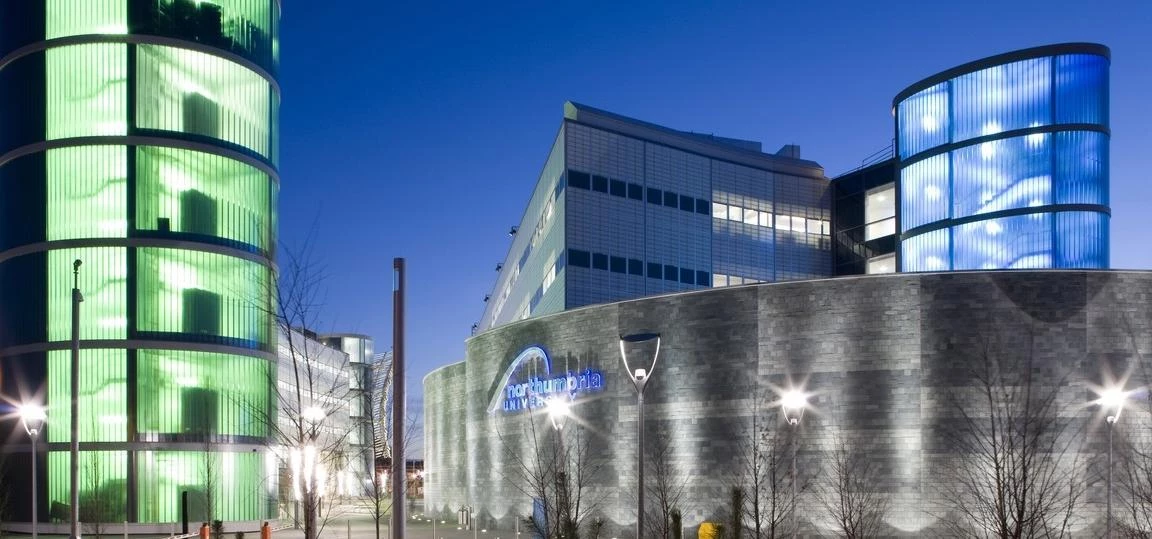
Partner Article
Academics discuss the sex industry at international conference
TWO UK academics have been praised for their inclusive approach to researching the sex industry.
Dr Emily Cooper, from Northumbria University, and Dr Martin Zebracki, from Leeds University, led by Associate Professor Paul Maginn (University of Western Australia), believe those with first-hand experience need to be more directly involved in academic research.
They believe this will help to eliminate ineffective, contradictory and inconsistent policies and laws surrounding sex work.
Dr Cooper, a lecturer of Human Geography, said: “It was vital for us that we had sex workers and activists sitting alongside academics in the debate – we feel very strongly that the academic research space should be directly engaging with, and involving, those with experience in sharing research discussions and good practice.
“We were overwhelmed by submissions which allowed us to develop a rich itinerary of debate and discussion. We are extremely pleased with how well the sessions were received and the positive feedback we have had from delegates and organisers.”
This view was welcomed at their specially convened session – “(De)Sexualisation and (De)Pornification of Space” – at the recent Association of American Geographers annual conference in Chicago. The special session attracted a total of 27 papers from academics, sex workers, sex work activists, journalists and artists and accounted for a third of all papers sponsored by the AAG Sexuality and Space Speciality Group (SSSG)
Program Coordinator and Co-Chair-Elect of the SSSG, Dr John Paul Catungal – Killam Honourary and SSHRC Postdoctoral Research Fellow – said: “Their exciting sessions on (de)sexualization and (de)pornification of space featured cutting edge presentations that showcased the diversity of work under the rubric of ‘sexuality and space’ studies.
“What was really interesting and innovative was that the academics connected with activists and practitioners who were based in Chicago. This brought the conference in direct conversation with on-the-ground folks, and provided attendees with a glimpse of the ‘spatialities of the sexual’ as they are lived and felt by those who are local.
“As Program Coordinator and Co-Chair-Elect of the AAG Sexuality and Space Specialty Group, I thank Emily, Paul and Martin for their work, and look forward to their future endeavours.”
The sessions centred around seven key themes within the research area of sex work, sexuality and pornography during the five day event. A field trip also provided an overview of the historic and contemporary “suburban sexscape” of Chicago, including former red-light areas such as the Levee District, alongside present-day sex work and sexual entertainment venues such as The Bijoux Theatre as well as the original Playboy Mansion.
Dr Cooper stressed that her team’s view on inclusivity is shared by many of their peers but still believes it needs to be encouraged further.
She explained: “Academic spaces need to be more inviting and accommodating. For instance, conference fees are considerable for sex workers and sex worker organisations.
“However it’s important that we keep encouraging inclusivity – finding more novel ways of involving people and keeping conversations happening between sex workers, academics and policy makers.”
Serpent Libertine of SWOP (Sex Worker Outreach Project) Chicago praised the approach, saying: “As a sex worker and sex worker rights advocate, I was honoured to be invited to take part in the special section on ‘(de)Sexualisation and (de)Pornification of space’ at the Association of American Geographers conference in Chicago.
“While I was not accustomed to presenting at highly academic conferences, I felt supported and welcomed by the organisers and my presentation on the role of moral panics in the destruction of sex worker spaces was well-received by conference guests.
“On the final day of the conference, I hosted a tour of Chicago neighbourhoods and notable landmarks relating to kink, queer, and sex worker spaces in the local geography. Overall, I was impressed with the attempt on the part of the organisers to include and promote sex worker perspectives in academia and future research on the sex industry.”
As well as focussing strongly on inclusivity, the conference also featured sessions looking at the ineffective and sometimes contradictory role of authorities and regulatory policies surrounding sex work and pornography. She explained: “We need to debunk poor, outdated and biased statistics and research into sex work as this causes both moral panics and, ultimately, bad policies on sex work that negatively impact on sex workers’ economic and personal lives”.
Dr Cooper, Dr Zebracki and Prof. Maginn are now working on ways to bring the papers presented at the AAG to academics, policymakers and the general public. They have had preliminary discussions with an international publisher about an edited book idea.
This was posted in Bdaily's Members' News section by Northumbria University .
Enjoy the read? Get Bdaily delivered.
Sign up to receive our daily bulletin, sent to your inbox, for free.








 Raising the bar to boost North East growth
Raising the bar to boost North East growth
 Navigating the messy middle of business growth
Navigating the messy middle of business growth
 We must make it easier to hire young people
We must make it easier to hire young people
 Why community-based care is key to NHS' future
Why community-based care is key to NHS' future
 Culture, confidence and creativity in the North East
Culture, confidence and creativity in the North East
 Putting in the groundwork to boost skills
Putting in the groundwork to boost skills
 £100,000 milestone drives forward STEM work
£100,000 milestone drives forward STEM work
 Restoring confidence for the economic road ahead
Restoring confidence for the economic road ahead
 Ready to scale? Buy-and-build offers opportunity
Ready to scale? Buy-and-build offers opportunity
 When will our regional economy grow?
When will our regional economy grow?
 Creating a thriving North East construction sector
Creating a thriving North East construction sector
 Why investors are still backing the North East
Why investors are still backing the North East